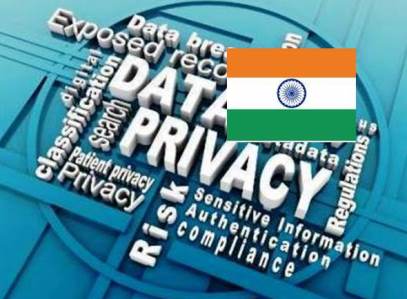Article 13 (3) of the Indian Constitution gives a rough idea of what all can be included as law and it mentions ordinance, order, bye-law, rule, regulation, notification, custom usage in the territory of India, although, it speaks in the context of Part III and more closely to Article 13 but obviously it is not pernicious to adopt this inclusive definition in general context.
Recently, the Ministry of Electronics and IT notified Information Technology (intermediary Guidelines and Digital Media Ethics Code) Rules 2021. The notification explicitly proclaimed vociferously that Social Media platforms are welcome to do business in India provided they strictly adhere to the constitution and laws of India. In India Right to privacy is a fundamental right u/art.21 of the Indian Constitution.

Historical Journey of Right to Privacy
For the first time it was recognized by the Hon’ble supreme Court in Kharak Singh Vs. State of U.P (SC 1962) the 6 judge bench in which J. Subba Rao & J. Shah had a dissenting opinion wherein Justice Subba Rao opined that the Constitution does not not expressly declare right to privacy as a fundamental right but the said right is an essential ingredient of personal liberty. This judgement can be termed as a landmark which definitely sowed the seed of Right to Privacy in Indian Judicial history. Often I have noticed that the dissenting opinion of the court of justice becomes the step towards an evolution of a new species of law.
In Mr. X Vs. Hospital Z (SC 1998) wherein all kinds of fundamental right under article came ahead before the court of justice for eg. Right to Marry, Right to Privacy, Right to Confidentiality (ethics and doctor-Patient relationship), Disclosure of personal information on grounds of public policy. The Controversial judgement by the division bench suspended the right to marry for HIV patients until they are cured. (Read Judgement here- https://indiankanoon.org/doc/382721/).
Obviously this judgment created lots of hue and cry in the HIV community and the issue was once again brought before the court of Justice in Mr. X Vs. Hospital Z (SC 2002) and court held that the judges erred in their judgment & right to marry was restored for HIV patients with the informed consent of their potential spouse. However, the judgement was not overruled entirely and clearly it provided some parameters to be considered upon. (Read Judgement here – https://indiankanoon.org/doc/1826342/).
Once again “Right to Privacy” buzzed in Indian Judicial system and all the illusions, grey areas were removed by the court of justice by pronouncing the landmark and historical judgement in the case of Justice K. S. Puttaswamy (Rtd.) Vs. Union Of India (SC 2017) infamously known as Aadhaar Verdict, a bench of 9 judges unanimously recognized “The Right To Privacy ” is a fundamental right included under article 21 Part III of the constitution. This historical judgement overruled the Kharak Singh & M.P. Sharma decisions. There were a plethora of cases showing a dare to recognize the right to privacy but none of them had declared it as a fundamental right.
No wonder, the history of Indian judicial system took a long time to reach here. Currently the internet privacy issues in India are governed as per Section 72 of Information Technology Act 2000 which provides the penal provision for its breach. A general aspect of Privacy is governed as per the Constitution as it has been recognized as a fundamental right. There are no consolidated privacy laws however, the data protection bill seems a promising one to guarantee that the breach of personal data will be taken with all seriousness, it has some drawbacks too. We shall discuss the same in our second part of the post. We will also discuss the steps taken by the law making authorities to curb the privacy issues and abuse by the social media platforms.
